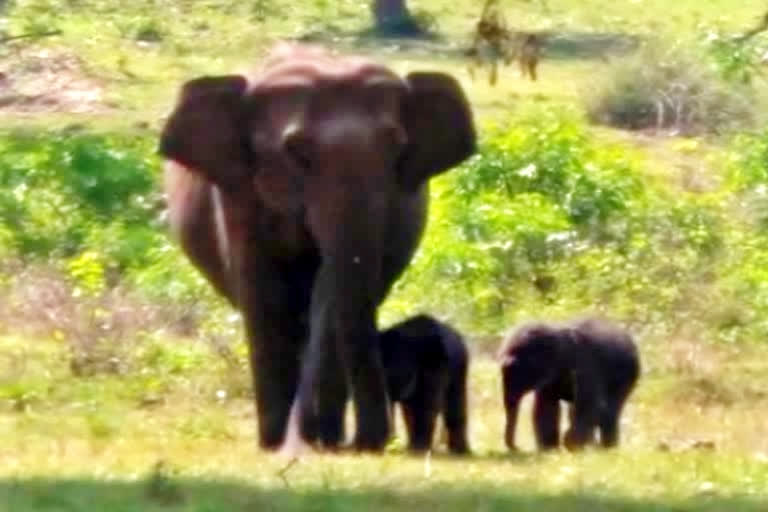New Delhi:Along with the main recommendation in connection with the CITES under proposed amendments to the Wild Life (Protection) Act, 1972, a Parliamentary panel has also recommended creation of an advisory body for addressing the human-animal conflict and suggested strict measures for the State Board for Wild Life (SBWL).
As reported by IANS on Thursday, the Department-related Parliamentary Standing Committee on Science and Technology, Environment, Forests & Climate Change, in its Report on 'The Wild Life (Protection) Amendment, Bill, 2021' had supported the government's reason for legal backing in view of the Convention on International Trade in Endangered Species of Wild Fauna and Flora (CITES).
It had recommended critical changes in the way it is done and also provided observations and recommendations on a number of issues, including human-animal conflict (HAC). Conflict between humans and animals is one of the main threats to the long-term survival of some of the world's most iconic species, a 2021 report by the World Wide Fund for Nature (WWF) and the UN Environment Programme (UNEP) had pointed out.
It had highlighted that globally, conflict-related killing affected more than 75 per cent of the world's wild cat species. Besides, many other terrestrial and marine carnivore species such as polar bears and Mediterranean monk seals as well as large herbivores such as elephants are affected. In India, as per the Environment Ministry data, more than 500 elephants were killed between 2014-2015 and 2018-2019, mostly due to human-elephant conflict.
Also read: IIT Palakkad: Experts suggest strict security measures to keep elephants at bay
Of course, more than 2,000 humans too were killed in such conflicts during the same period. Stating the reasons for why another Statutory Committee is required when the law already empowers constitution of State Board for Wild Life (SBWL), the Parliamentary Committee said, "Human-Animal Conflict (HAC) is a complex issue as serious as hunting and therefore needs legislative backing in order to effectively manage the situation."
The HAC requires to be disaggregated into those conflicts that endanger human life and property (as in the case of elephants and large carnivores) and those that damage human property - for example, crop damage, the Committee report said. It had suggested the possible composition of the Committee assigning reason.
The suggested HAC Advisory Committee will be headed by the Chief Wild Life Warden, who is the sole authority under the relevant section of the Wild Life Act to take decisions in respect of Schedule I animals (listed as per their status, endangered or not) and he/she, in turn, can consult this committee under the newly proposed section to enable the Chief Wild Life Warden in proper decision making, "particularly in contentious situations involving huge media & public outcry.
